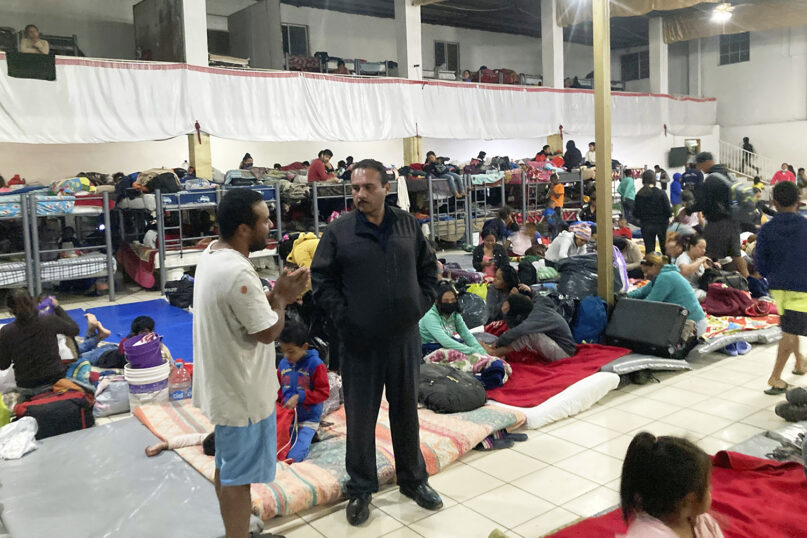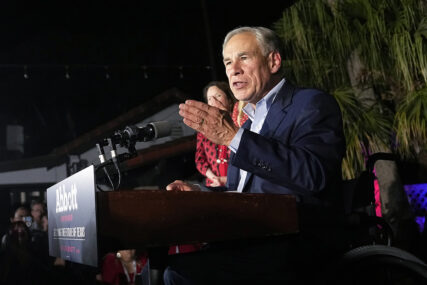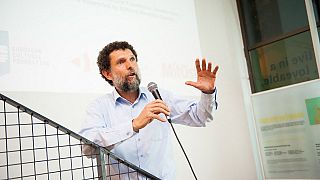Right-wing’s disproportionate targeting of Jewish left-wingers continues
By Skwawkbox

Artwork by @agitate4change
The Starmer regime has expelled yet another Jewish member – and another former elected officer. Stephen Marks, a left-wing member of Labour’s National Constitutional Committee until he was suspended by the right – a standard factional tactic to ‘nobble’ officials elected by members – has been kicked out of the party for signing petitions.
According to Jewish Voice for Labour, Marks was expelled for signing petitions calling for the end of the use of antisemitism as a smear – a phenomenon already recognised, no doubt to Keir Starmer’s unending frustration, by the QC-led Forde Inquiry he reluctantly commissioned. Labour did not even bother responding to Marks’s challenge to the party’s pretext for suspending him.
According to Jewish Voice for Labour (JVL), Marks:
wrote to the Party challenging the grounds for his suspension, but never received a response to that or subsequent attempts at communication.
Until last week, 19th December 2022, when he received a notice of summary expulsion.
Bindmans has written a letter on his behalf to the EHRC which is monitoring Labour’s implementation of its Action Plan against Antisemitism challenging the entire procedure.
They point out thatall actions pre-dated Stephen’s election to the NCC
he was one of a large number of signatories to these public documents and that other signatories have not been investigated by the Labour Party
the charge of undermining the Labour Party’s campaign against racism, which in view of Stephen’s strong anti-racist actions and beliefs, is in fact an example of the Labour Party conflating legitimate criticisms of the Israeli government (expression of which is protected by Article 10 EHRC) with antisemitism.
It goes on to cite words written by Stephen in response to the charges:
“There is a principle of natural justice here, the right to speak up for others subject to accusations which is relevant to all three petitions. I have confirmed with other NCC colleagues that a signature on a statement or petition would not normally be accepted as evidence in a disciplinary case, being merely an expression of legitimate opinion, unless the petition itself contained racist or sexist expressions. Also it is illegitimate not to show ALL signatories as this representation singles me out.”
You can read the full letter here.
Marks is at least the third Jewish member – and the second elected by members at a national level – expelled by Labour in just the last couple of weeks, during the Jewish festival of Hannukah, preceded by National Executive member Naomi Wimborne-Idrissi and Heather Mendick on similarly trumped-up ‘charges’.
Wimborne-Idrissi wrote of Marks’s expulsion:
There is clearly ‘no room in the inn Keir Starmer’s party’ for ‘the wrong type of Jew’ as the deeply-racist right-wing regime continues to reveal its real nature.
UK workers concerned about lack of support as nurses prepare first walk out in 106-year history
:quality(70)/cloudfront-eu-central-1.images.arcpublishing.com/thenational/MIL3KDY6TKY337NYQTI3R4KI6M.jpg)
Labour leader Keir Starmer accused Prime Minister Rishi Sunak of going 'into hibernation' during strikes. AFP
Laura O'Callaghan
Dec 14, 2022
Labour leader Keir Starmer and shadow health secretary Wes Streeting have been accused of adopting a New Labour line on UK healthcare reform, sparking fears from workers of a lack of political support as they take strike action.
As Britain braces for historic strikes among workers in the National Health Service, Mr Starmer continues to accuse the Conservative government of failing to negotiate with unions demanding pay rises.
At the same time, Mr Starmer has not abandoned his stance that the 19 per cent pay rise being sought by nurses is unaffordable.
For the first time in the Royal College of Nursing’s 106-year history, members across the country will stage a walkout on Thursday and again on December 20 after Rishi Sunak’s administration rejected their request for a 19 per cent pay rise.
READ MORE
UK strike dates in full, from rail staff to nurses and airport workers
On December 21, about 10,000 ambulance workers across nine NHS trusts in England and Wales will take part in industrial action in a dispute over pay. The Unite union said the most recent offer of a pay rise under the Agenda for Change scale amounts to a real terms pay cut because inflation is at a 40-year high.
During Prime Minister’s Questions on Wednesday, the Labour leader said Rishi Sunak “has curled up in a ball and gone into hibernation” while “winter has arrived for our public services”.
He said the Prime Minister was “pretending everything is fine”.
“Try telling that to those on waiting lists or those that can’t afford to pay for a next-day GP appointment,” he added.
“After 12 years of Tory failure, winter has arrived for our public services.
“If he can’t act on behalf of patients or nurses, or everyone who wants these strikes called off, then surely the whole country’s entitled to ask what is the point of him and what is the point of the government he is supposed to be leading?”
:quality(70)/cloudfront-eu-central-1.images.arcpublishing.com/thenational/AG44G25QIAY57A7UKY46DTPPZE.jpg)
Sir Keir Starmer's approach to leadership has been likened to Tony Blair's. PA
At the Institute for Public Policy Research’s health conference in London last week, Mr Streeting blamed “Conservative mismanagement of our public services over the past 12 years” for the “doom spiral” gripping Britain.
The shadow health secretary has incurred the wrath of the British Medical Association with his calls for NHS reform. In an interview with the Sunday Telegraph, he claimed the doctors’ union was “hostile” towards Labour’s plans for the health service because the party wanted to improve standards for patients, which could mean different working hours for GPs.
“Whenever I point out the appalling state of access to primary care, where currently a record two million people are waiting more than a month to see a GP, I am treated like some sort of heretic by the BMA — who seem to think any criticism of patient access to primary care is somehow an attack on GPs,” he said.
Allyson Pollock, a clinical professor of public health at Newcastle University, told The National that Labour’s approach to the NHS is not constructive because it largely ignores the root causes of the service’s problems.
She said politicians across the political spectrum too often blame the Covid-19 pandemic for years of mismanagement.
She likened the opposition party’s line to that adopted by New Labour. The term refers to the period in the mid- to late-1990s under the leadership of Tony Blair and Gordon Brown, when Labour was presented as a reformed party.
“I think the most surprising thing is that neither Keir Starmer nor Wes Streeting have pointed to the 30 years of progressive dismantling of the NHS,” she said.
“I would have expected them to set out what they mean by reform. I was dismayed because they are missing the fundamental critique of what’s happening to the NHS. They have failed to articulate the real problems with the system.
“It is clear that new legislation is needed to reinstate the NHS. The workforce problems are a consequence of the running down of the NHS and failure to undertake workforce planning. This was all predicted and predictable.
“It appears that Keir Starmer is adopting the New Labour line which is it doesn’t matter who provides the services so long as there is public funding. But the evidence shows privatisation leads to waste and inequality.
“Labour needs to take a long, hard look at the system and how it’s being dismantled and destroyed. They should be much stronger in their analysis of why the system is breaking.
“There has been a long-term ideological shift away from belief in public services and a belief in markets since New Labour and the Blair government, with the exception of the short period when Jeremy Corbyn was the leader of the Labour opposition.”
Ms Pollock said laying the blame for the NHS’s problems on the Covid-19 pandemic was a mere diversion tactic used by politicians. She argued that many problems affecting the health service today existed years ago and have only continued or worsened.
She said it was “not good enough just to say the NHS is underfunded” without taking into account where money has been channelled to.
“The real story is where is the money going?” she said. “Many billions of pounds are flowing out in contracts with bankers, equity investors, shareholders and director's remuneration — billions of pounds are flowing out to the private sector. It’s all unscrutinised and there is a lack of transparency.
“The NHS has become inefficient because of the way money is leaking out of it and the way money is being diverted to commercial contracting and commercial providers.”
Nurses on strike in the UK — in pictures
:quality(70)/cloudfront-eu-central-1.images.arcpublishing.com/thenational/UOSD4T5B3YICHOZFXUVFEJWQSM.jpg)
:quality(70)/cloudfront-eu-central-1.images.arcpublishing.com/thenational/WKT5FFP7FKZZDQGSUP7GF4ZIGE.jpg)
:quality(70)/cloudfront-eu-central-1.images.arcpublishing.com/thenational/XLU6MRLFVAXHY2JTWKTXTCYDT4.jpg)
:quality(70)/cloudfront-eu-central-1.images.arcpublishing.com/thenational/WGRNQ4QFVY65Z7ONC7V4VEBAMQ.jpg)
:quality(70)/cloudfront-eu-central-1.images.arcpublishing.com/thenational/YEOGZHZTQMQV6TXAP4ASQZEGIM.jpg)
:quality(70)/cloudfront-eu-central-1.images.arcpublishing.com/thenational/GJTP7KLFPXLEZ2EPRD7745CDZE.jpg)
:quality(70)/cloudfront-eu-central-1.images.arcpublishing.com/thenational/F3M27VG27SZJHGBHXM3OA6JHCE.jpg)
:quality(70)/cloudfront-eu-central-1.images.arcpublishing.com/thenational/ZS5BQPC5SALKFFN2LONYGB7BRY.jpg)
:quality(70)/cloudfront-eu-central-1.images.arcpublishing.com/thenational/75XXFXPLW5DE3A7WUFKUEJSVNA.JPG)
:quality(70)/cloudfront-eu-central-1.images.arcpublishing.com/thenational/L7YG3QI3UMIYJ7G66L4BT3FEOE.jpg)
:quality(70)/cloudfront-eu-central-1.images.arcpublishing.com/thenational/TE55TM44RPDSYE3O4VVKOO3RXY.jpg)
:quality(70)/cloudfront-eu-central-1.images.arcpublishing.com/thenational/RJ7PO4TDD7Q73MGX5D7FDSY4N4.jpg)
:quality(70)/cloudfront-eu-central-1.images.arcpublishing.com/thenational/36IINF2QXVECTEOK7TFLABADYM.JPG)
Members of the Royal College of Nursing on the picket line outside Queen Elizabeth Hospital in Birmingham, as nurses in England, Wales and Northern Ireland strike over pay. PA
Updated: December 15, 2022, 4:17 a.m.










